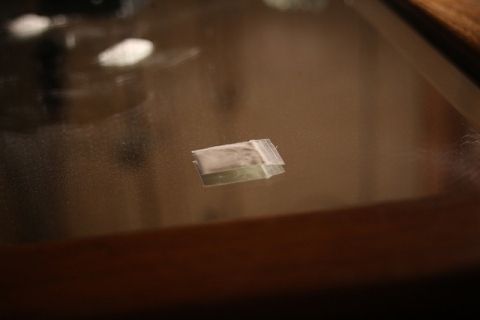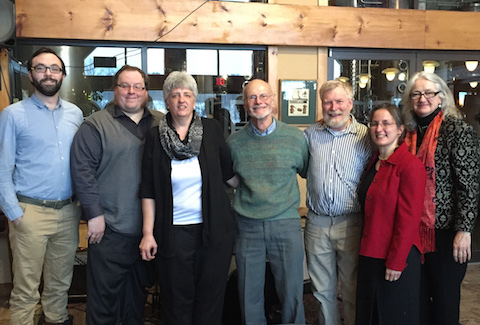
Above: A bag of heroin. Photo from a series of photographs shot by WBEZ Chicago Public Radio documenting heroin use.
Heroin addiction is sweeping through the Catskills, taking lives with it. (Here at the Watershed Post, we write more crime stories about heroin than about any other drug.)
In 2013, 89,269 people enrolled in heroin drug-treatment programs in New York state; in 2014, that number jumped to 118,000, according to data from Gov. Andrew Cuomo's office. Heroin abuse is growing the fastest among the young, among ages 18 to 34. Politicians are worried; the governor launched a statewide campaign to battle heroin abuse last fall.
Locally, the toll is growing. A doctor at Catskill Regional Medical Center calls heroin a "public health crisis." Delaware County's undersheriff says that despite record heroin busts, "more people are using drugs, overdose deaths have accelerated and jails are crowded." Community forums on the topic are being held around the region.
The Kingfisher Project, a collaborative storytelling and reporting initiative based at WJFF 90.5 FM in Jeffersonville, is digging deep into the heroin epidemic in the Catskills and beyond.
The project, which began in January as an hour-long radio program, is a combination of radio journalism, oral history and community organizing: it not only tells untold stories of how heroin damages lives in our community, it aims to battle the epidemic. Community members are invited to weigh in on topics to explore as the series unfolds, and the project's organizers are sponsoring community forums and reporting on public health initiatives at the same time as they're interviewing the families of people who have died because of heroin.
 Left: Rebecca Pisall. Photo via the Kingfisher Project's website.
Left: Rebecca Pisall. Photo via the Kingfisher Project's website.
One of those people is Rebecca Pisall, a 20-year-old graduate of Sullivan West High School who died in June 2014 when her uncle, who had sold her heroin, reportedly shot her in the head during an argument over a drug deal. Pisall's mother, Julie Pisall, is one of the founders of the Kingfisher project. In the first radio segment of the project, she tells her daughter's story in the hopes that it will help others avoid her fate.
Listen to Julie Pisall tell the story of how her daughter died because of her heroin addition in the first edition of the Kingfisher Project's radio series, below.
In a press release, Julie Pisall describes why she started the Kingfisher Project
In the short three months since the Project’s inception, we experienced an outcry of need from the public to do more about the epidemic of drugs and heroin. People ask me all the time why I am involved even though it is so painful. It is because I want no other family to go through what my family is going through.
The Kingfisher Project was awarded a $5,000 Nonprofit Innovation Award on Wednesday, March 4 at Sullivan County's Nonprofit Leadership Summit. Its organizers plan to use the money to give volunteers digital recording equipment and other tools. Looking to help? They're looking for more volunteers to research and produce segments -- get in touch with them at kingfisherwjff@gmail.com.
Below: The people behind the Kingfisher Project. From left, WJFF General Manager Adam Weinreich, Program Director Jason Dole, Kingfisher Producer Julie Pisall, WJFF Co-founder Malcolm Brown, Making Waves Producer Kevin Gref, Nonprofit Leadership Summit Vice-Chair Irene Jones, and WJFF Co-founder Anne Larsen. Photo courtesy WJFF.















